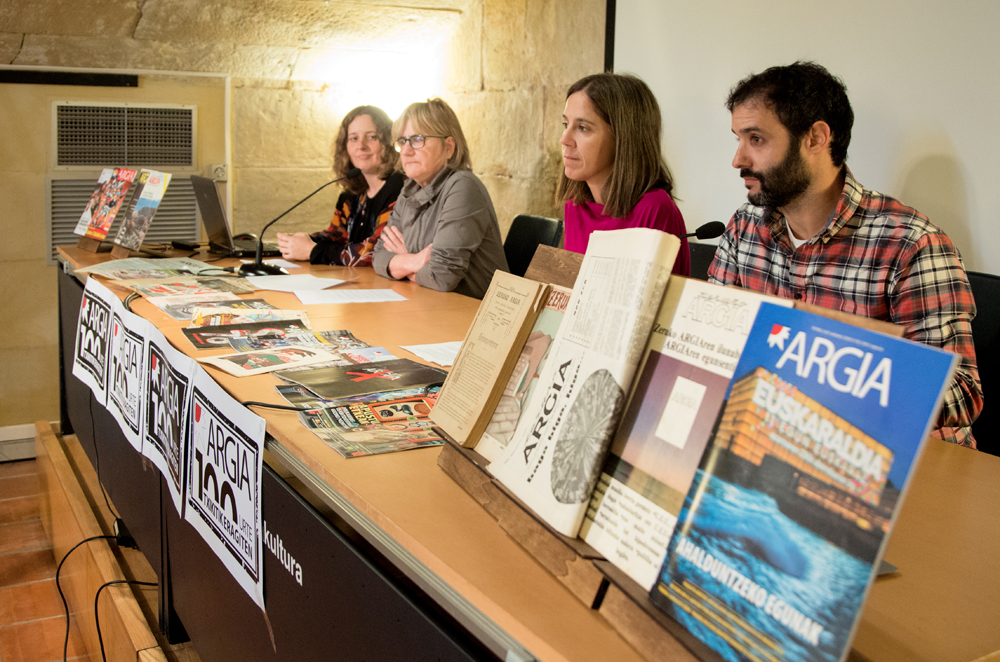ARGIA, the oldest Basque publication, has digitalised its 100-year old legacy
ARGIA is the senior Basque publication, and it now has its 100th anniversary. Members of ARGIA, along with representatives from the Basque Government, have presented the acts which will be held to celebrate the anniversary. "A century is no ordinary anniversary, and our team has been preparing appropriate celebrations for a long time now", they explained.

In 1919 Zeruko Argia ('Heaven's Light') was founded as a religious magazine; under its later name (Argia – 'Light') it became a current affairs magazine, and it has played a major role in the development of modern Basque journalism. "It has been a meeting place for all the Basque creators, people working in culture and journalists."
Altogether it has published more than 2,600 issues and thousands of pages, all of them entirely in Basque. In collaboration with the Basque Government's Culture Department ARGIA has started to digitalise all of those issues with the objective of making them available on the website. "We have had this objective for a long time: making the whole legacy available to everybody", they have said.

In addition to that, the process of digitalising the historical photographic archive is also underway. There are thousands of photos which reflect social and political events in the Basque Country over the last century, many of the connected with Basque cultural activity and local movements.
ARGIA is going to bring out a special issue in 2019 to celebrate its 100th anniversary, and there will be round table discussions in every Basque province. "We've turned one hundred, and we want to last another one hundred years", say the people at ARGIA. They also want to take advantage of the anniversary to celebrate the whole of Basque journalism having "overcome many difficulties" and to give it the recognition which it deserves: "ARGIA has turned one hundred, as has the whole of the Basque press along with it."
This article was translated by 11itzulpen; you can see the original in Basque here.





















